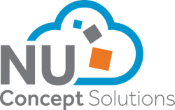If you're involved in ERP in 2025, make sure you have these seven skills in your locker.
Building an ERP team starts with hiring the right people. Job board Adzuna shows the number of ERP implementation jobs in February 2025 was significantly higher year on year.
With the demand for ERP professionals rising, securing the right opportunities isn’t only about availability: it’s about having the right skills to stand out in a competitive market. You need a blend of hard and soft skills, including project management ability and staying updated with technology. If you’re looking for your next ERP role, ensure you have the skills employers want.
1. Project management
Effective project management is crucial in ERP environments. Projects often involve different stakeholders, tight deadlines, budgets, and evolving technologies. Without good planning, coordination, and execution, projects can spiral into delays, budget overruns, or failure.
Many employers want candidates who have had experience managing an ERP project. Witnessing the ERP implementation lifecycle is a huge benefit for employers. You should have project management skills, including project planning, execution, timelines, and budgets.
2. Communication
Leading an ERP implementation requires good communication skills. ERP professionals need to discuss projects with their teams and stakeholders some of whom may have little technical understanding. The ability to communicate through spoken or written word is an integral part of making an ERP project plan succeed. Excellent communication skills make or break projects. Strong communication enables you to work well in a team, lead others, and better serve clients.
3. Artificial Intelligence (AI)
The Future of Jobs Report 2025 brings together the perspectives of over 1,000 leading global employers. It is no coincidence that AI and big data are the fastest-growing skills. AI’s value to companies is clear by the wages of workers with AI specialist skills. According to PwC’s 2024 AI Jobs Barometer, there is a 14% wage premium for workers with specialist AI skills. Employers value AI professionals as they contribute to organisational success and growth.
AI is also revolutionising ERP systems. It can enable smarter decision-making, predictive analytics, and process automation. Here’s how AI impacts ERP:
- Predictive Insights: AI algorithms analyse data to predict future trends, helping decision-making.
- Automated Workflows, Chatbots, and Virtual Assistants (VAs): Real-time support can improve user experience. AI-powered chatbots can free up human resources. Automated workflows can reduce manual effort and minimise errors.
- Personalised Experiences: AI tailors user interfaces, making ERP systems more intuitive and user-friendly.
AI is at the forefront of technological advancements, with applications in machine learning, natural language processing, computer vision, robotics, and more. Now is a good time to develop skills to help companies to integrate and apply AI and make it sustainable.
4. Big data
According to employer expectations for the evolution of skills in the next five years, technological skills are projected to grow more than any other skill. Big data tops the list as one of those fastest-growing skills. Integrating Big Data into ERP systems is a turning point in how organisations operate and make decisions. Data science skills are also in demand as companies realise that data can drive innovation, optimise operations, and enhance customer experiences (CX).
5. Probelm-solving
Employers want to ensure their ERP implementation goes well. They want ERP professionals to fix problems as they arise, sometimes even before they arise! As an ERP professional, you should be able to identify, analyse, troubleshoot, and solve technical issues. In your CV, LinkedIn profile, and interview stage, show past examples of such problem-solving.
6. Remain relevant
Recruiters and hiring managers want candidates who’ve adapted their skills to the changing market. This means taking time to expand your skill sets to future-proof your career. ERP professionals should have experience or knowledge in using the proper technologies to implement and manage ERP hardware and software. Programming languages such as SQL or XML remain useful. While ERP certification isn't always needed for ERP projects, it can enhance your marketability, especially for senior roles or complex projects. Most hiring managers value consultants with ERP certifications when managing specific ERP systems.
ERP professionals should be familiar with ERP systems and architectures, such as those from SAP, Microsoft, and Oracle, and understand local data standards and regulations.
When applying for a role, you should have:
- Relevant skills and industry experience
- Knowledge of the chosen ERP system
- An understanding of the business processes
- The ability to navigate common challenges
7. Be adaptable
Be open to new opportunities as automation creates new roles within the ERP industry. Be proactive in exploring these opportunities. Reskilling and upskilling can enable you to transition into these new roles. By diversifying your expertise, you can open doors to new career paths and stay ahead of the competition. By staying adaptable and embracing change, you can mitigate the impact of job displacement and continue to thrive in the ERP industry.
Alongside technical skills, tech specialists need soft skills. Although AI can perform many tasks faster than humans, soft skills are essential for building trust and rapport. Besides technology-related skills, creative thinking, resilience, and flexibility are vital. These, along with curiosity and lifelong learning, are also expected to continue rising in importance.

